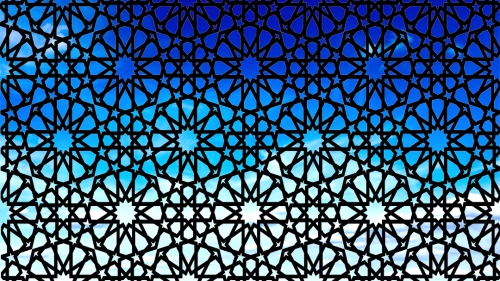Enriching Public Libraries to Advance Community
There are myriad approaches to advancing community. Given the sociopolitical conditions of Muslims in the Western societies, Muslim contributions to the public libraries can be a unique way to advance the community.
By advancing the community I specifically mean enhancing the social understanding and recognition of Muslims as any other "normal" group that shares in the civic privileges and responsibilities in Western societies. The need for this understanding and recognition requires little explanation. As the "fastest" growing religious community, Muslims are making positive contributions to society in various fields of activity in the West. Yet, they continue being maligned and even discriminated against in media, organizations, scholarship, and politics.
Pramatha Chowdhury, a Bengali author, once wrote that libraries are the hospitals and gymnasiums of the mind. True, libraries provide people opportunities to treat the diseases of the mind (e.g., ignorance, prejudice) and to ensure the health, fitness and wellness of the mind. Libraries are archives and springs of knowledge and scholarship that represent the software of societies.
Growth and development of public libraries correlate with the educational, scientific, technological and institutional developments in any society. The more a society is educationally and technologically advanced, the more numerous and sophisticated are its public libraries. For centuries, when Muslims were more advanced than most other communities in the world, they had developed rich libraries in hubs of their intellectual activities in Asia, Africa, and Europe.
For the past few centuries, however, the wheel of intellectual fortune has rotated towards Western societies where libraries have mushroomed in most urban and rural cities. Now, according to the National Center for Education Statistics (1997), the United States has 8,921 public library systems of which 1,454 (16.3%) have branches. Countries in the European Union have more than 40,000 public libraries, most of which use or will shortly use the latest developments in information technologies.
These public libraries are a key player in the development of what is called information society or knowledge society. They play a tremendous role in social circulation of meaning and understanding. They complement the educational libraries and other institutions of learning and research. The elementary schools and high schools of the United States, for example, strongly recommend that students make use of public libraries.
As a parent of elementary school and high school kids, I have found that some teachers assign books and other study materials easily available in public libraries. While helping my children make use of the public library resources in several cities over the past few years, I myself became interested in using many of the public library materials. In this way, I believe, public libraries attract even the reluctant people -- kids through adults, providing them opportunities to engage in active, lifelong learning.
U.S. public libraries are fairly rich. Yet, what I find missing in these libraries are information, books, videos, and audios about Islam and Muslims. Orientalists like Bernard Lewis and Islam bashers like Daniel Pipes are authors available in the public libraries (and even university libraries). Books that expose the mythologies of Israel by such authors as Noam Chomsky are hard to find. As the author of the first dictionary of the English language Dr. Samuel Johnson said, "It is not necessary to eat the whole ox to test whether the beef is tough." The few libraries I explored should provide a fairly realistic picture of the entire library system in the U.S. and perhaps the other Western countries.
Muslims have not only a stake but also a responsibility in enriching the public libraries with balanced information about Islam and Muslims and about the realities of the Muslim world and Middle East conflict. Enriching the libraries will contribute to ending the spirals and webs of ignorance about Islam on the part of Muslims themselves and others. For people study books and other library materials out of necessity and curiosity.
Muslim individuals, groups, and organizations, then, should take up projects of contributing books, videos, audio recordings and Internet resources to every public library in their localities. They should provide Islamic bibliography banks that libraries may use in their procurement drives. Sara A. Ali presents an excellent resource guide for developing Muslim libraries at her website. Muslim individuals can use this as a starting point for their exploration of possible contributions.
Even if a Muslim individual does not have the capability to donate a single book, let him/her be a user of public libraries and ask public librarians for specific books and information materials he/she needs. As I experienced myself, library officials are very open to queries and suggestions, and they thankfully accept gifts of books and other materials worthy for study and review by the public at large.
Mohammad A. Auwal is an assistant professor in the Department of Communication Studies at California State University, Los Angeles and is a regular columnist for iviews.com






